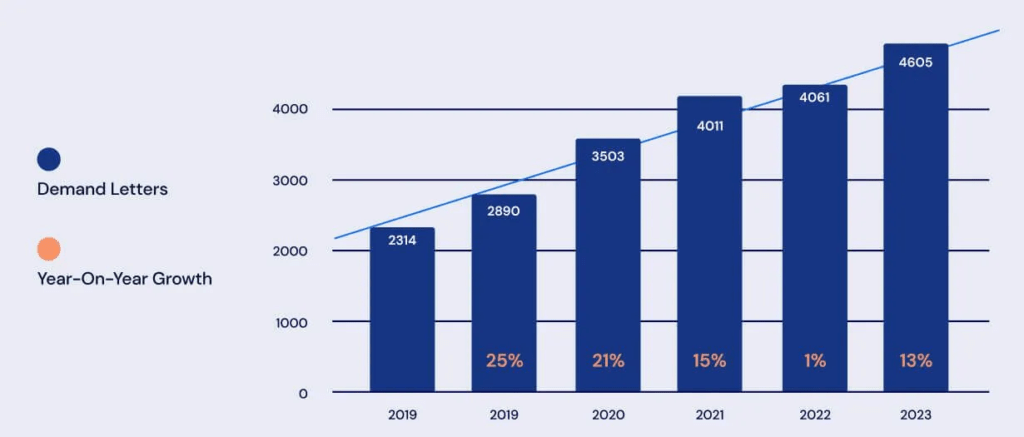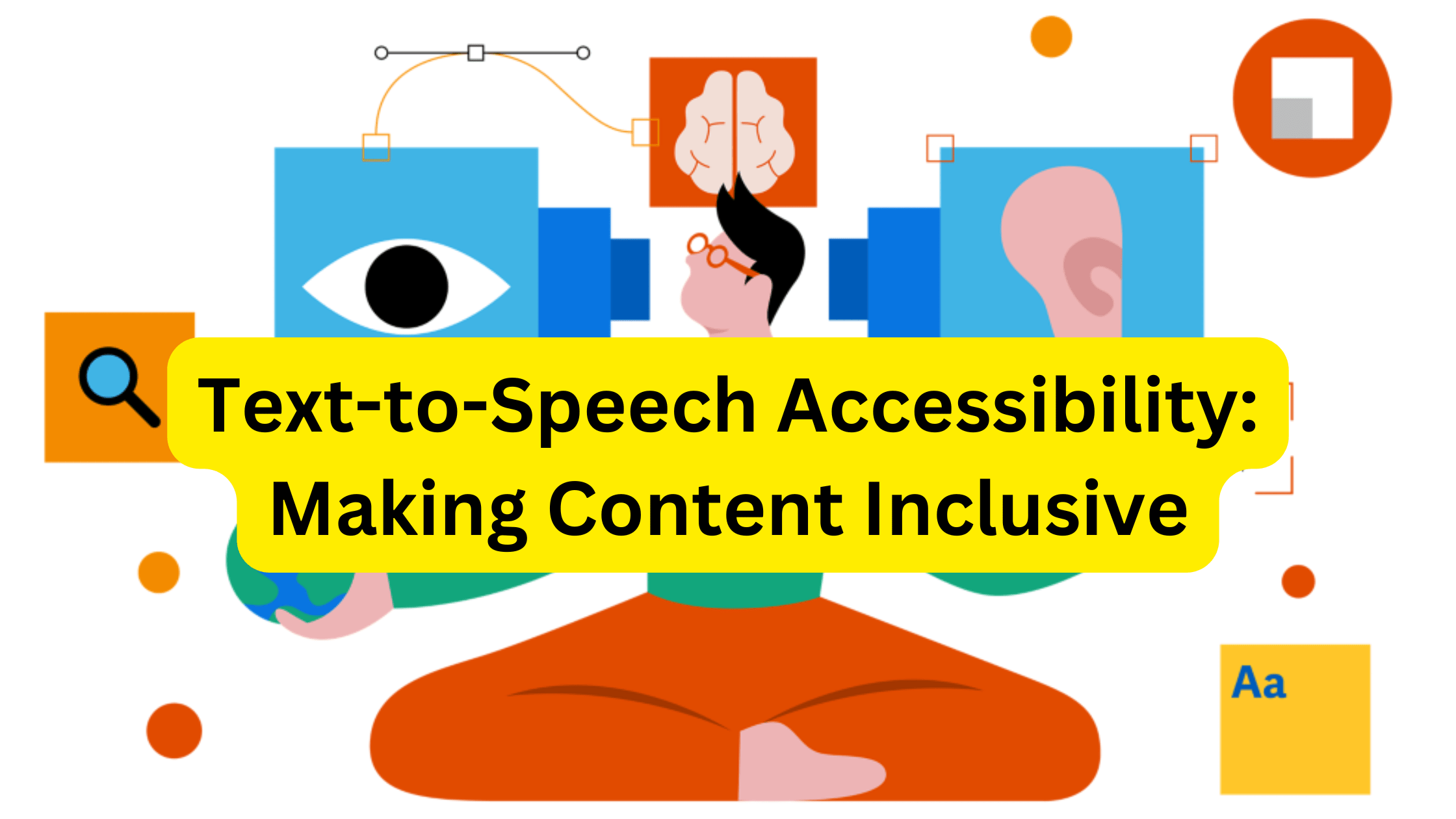In an increasingly digital world, accessibility is no longer optional—it’s essential. By 2025, over 2.2 billion people globally live with visual impairments, and an estimated 750 million struggle with reading difficulties like dyslexia, according to the World Health Organization and International Dyslexia Association. Text-to-speech (TTS) technology has become a vital tool, dismantling barriers to information and entertainment for these communities. Leading this charge is Micmonster.com, a voice generator offering natural voices, unlimited access, and support for over 140 languages. This article explores how TTS enhances accessibility, why Micmonster.com is a standout solution, and real-world examples of its impact in 2025.
The Growing Need for Accessibility in 2025

Source: Accessibe
Digital content—spanning websites, e-books, and educational materials—forms the foundation of modern communication. Yet, for visually impaired individuals and those with reading challenges, this content can be inaccessible without assistive tools. Traditional solutions like braille or human narration are costly and slow. A single braille book can cost hundreds of dollars, while hiring a narrator for an audiobook averages $200-$400 per finished hour, per the Audio Publishers Association.
Text-to-speech provides a faster, more affordable alternative. By converting text into spoken words, TTS enables users to:
- Access Information: Read news, emails, or research independently.
- Learn Effectively: Engage with educational content without visual strain.
- Enjoy Entertainment: Experience novels and podcasts in audio form.
In 2025, TTS is about inclusion, and Micmonster.com delivers this promise with a text-to-speech solution designed for accessibility and scalability.
How Text-to-Speech Enhances Accessibility

TTS technology transforms text into audio with precision, offering significant benefits for accessibility:
1. Empowering the Visually Impaired
For the 2.2 billion people with vision loss, TTS is a lifeline. A 2024 study by the American Foundation for the Blind found that 78% of visually impaired adults use TTS daily for tasks like reading emails or navigating websites. Natural voices are critical—robotic tones frustrate users, while human-like speech improves comfort and understanding.
2. Supporting Reading Difficulties
Dyslexia and similar disorders affect how the brain processes text, often making reading slow or exhausting. TTS helps by reading aloud at a user’s pace. A 2023 Yale Center for Dyslexia study showed that audio-assisted learning boosts retention by 30% for dyslexic students.
3. Reducing Cognitive Load
For elderly users or those with cognitive impairments, dense text can be overwhelming. TTS eases this burden with audio delivery. Deep voice text-to-speech, with its soothing tones, enhances focus and reduces fatigue, making it ideal for extended use.
Micmonster.com addresses these needs with a voice generator that prioritizes naturalness and accessibility.
Micmonster.com: A Leader in Accessible Text-to-Speech
Micmonster.com stands out in 2025 as a premier TTS tool for accessibility. With unlimited packages, over 600 natural voices, and an intuitive platform, it meets diverse user needs. Here’s why it excels:
1. Unlimited Access for All
Many TTS services cap usage, limiting accessibility for daily users. A 10,000-character limit might cover an article but not a textbook. Micmonster.com offers unlimited plans:
- Pro Max Quarterly: $39 for 3 months.
- Pro Max Annual: $59.50/year (50% off with code “50TODAY”).
- Lifetime Plan: $399.50 (originally $799).
This ensures visually impaired students or dyslexic readers can access full courses or books without restrictions—a true step toward inclusion.
2. Natural Voices, Including Deep Voice Text-to-Speech
Robotic TTS alienates users, but Micmonster.com’s 600+ voices are human-like, thanks to neural TTS technology. Features include:
- Emotional Nuance: Warm, clear tones for long sessions.
- Deep Voice Options: Resonant tones that reduce fatigue, perfect for education or narration.
- Customization: Adjust pitch, speed, and emphasis.
A deep voice might narrate a lecture with authority, while a softer tone reads a story—both accessible and engaging.
Voice Samples of MicMonster:
3. Global Reach with 140+ Languages
Accessibility must be universal. Micmonster.com supports 140+ languages with accents, ensuring non-English speakers are included. A visually impaired user in Brazil can hear Portuguese, while a dyslexic student in Japan accesses Japanese—all naturally.
4. Ease of Use
Accessibility tools should be simple. Micmonster.com’s dashboard allows users to:
- Paste text and hear it instantly.
- Preview voices (e.g., deep voice text-to-speech).
- Download audio in MP3 or WAV.
No tech skills needed—just inclusive access.
Real-World Examples of Micmonster.com’s Impact
Micmonster.com’s features deliver real results. Here are three 2025 examples:
1. Empowering a Visually Impaired Student
Maria, a 22-year-old from Mexico, lost her vision to glaucoma. Braille textbooks were rare, and human narration was costly. Using Micmonster.com’s unlimited plan, she converted her 500-page biology textbook into Spanish audio with a deep voice text-to-speech option. “It’s like a professor reading to me,” she says. The $59.50 annual plan saved her thousands.
2. Supporting a Dyslexic Author
James, a 35-year-old U.S. writer with dyslexia, found proofreading exhausting. Micmonster.com’s unlimited access let him listen to multiple 80,000-word drafts via a clear voice. “Hearing my words catches errors I’d miss,” he notes. The deep voice option adds a professional edge.
3. Enhancing Elderly Learning
Li Wei, a 70-year-old retiree in China, struggled with English reading. Micmonster.com’s Mandarin and English voices turned courses into audio lessons. The deep voice text-to-speech reduced strain, and the lifetime plan ($399.50) ensured long-term use. “It’s a new world,” he shares.
These cases show Micmonster.com’s accessibility in action.
How Micmonster.com Compares to Competitors
Micmonster.com outshines other TTS tools in 2025:
- Speechify: Great for dyslexia with 200+ voices, but its $139/year plan caps at 150,000 words—limiting heavy users—unlike Micmonster.com’s unlimited access.
- NaturalReader: Free tiers help visually impaired users, but premium plans ($19.50/month) offer only 150 voices and lack deep voice customization.
- Amazon Polly: Affordable with a free tier of 5M characters/year, Polly’s 60 voices don’t match Micmonster.com’s variety or ease.
Micmonster.com’s unlimited model and natural voices lead the pack.
The Science Behind Micmonster.com’s Accessibility
Micmonster.com’s effectiveness stems from advanced AI:
- Neural TTS: Unlike older systems, neural networks create smooth, human-like speech for better comprehension.
- Multilingual Training: Voices trained on diverse datasets ensure authenticity across 140+ languages.
- Voice Customization: Deep learning adjusts pitch and prosody, tailoring audio to user needs.
This tech makes TTS welcoming and inclusive.
Why Accessibility Matters in 2025
Accessibility aligns with global trends:
- Legal Mandates: Laws like the ADA and EU Accessibility Act enforce digital inclusion.
- Social Impact: Inclusive tools reduce inequality, per the UN’s Sustainable Development Goals.
- Market Growth: The assistive tech market is projected to reach $40 billion by 2025, per Grand View Research.
Micmonster.com meets this demand affordably and effectively.
Conclusion: Micmonster.com as Your Accessibility Partner
Text-to-speech accessibility is about belonging. In 2025, Micmonster.com leads with unlimited access, natural voices, and deep voice text-to-speech options that make content inclusive. Whether you’re visually impaired, dyslexic, or seeking easier engagement, Micmonster.com’s voice generator transforms access into opportunity. Try it free at Micmonster.com and experience inclusion firsthand.
Sources and Notes
- WHO on Visual Impairment: Supports the 2.2 billion figure.
- International Dyslexia Association: Confirms 750 million with reading difficulties.
- Audio Publishers Association: Validates narration costs.
- American Foundation for the Blind: Cites 78% TTS usage.
- Yale Center for Dyslexia: Provides 30% retention boost data.
- Micmonster.com: Source for voice count, languages, and pricing.
- ADA and EU Accessibility Act: Legal context.
- UN Sustainable Development Goals: Social impact framework.
- Grand View Research: Market size projection.

